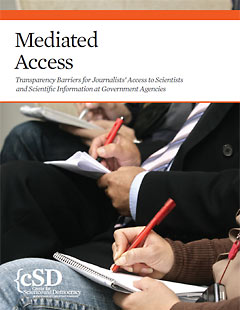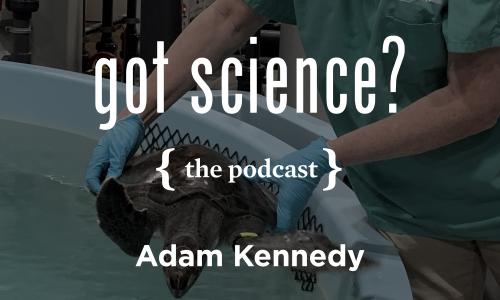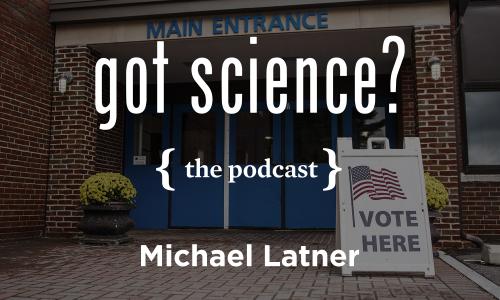Transparency invigorates a strong democracy. As citizens, we have the right to know about the scientific information shaping policies that affect our health, our safety, and the environment. Our government has a responsibility to share this information openly.
Journalists play a key role in this process. When they can have frank and honest conversations with government scientists, they can do a better job of communicating accurately about the issues these scientists work on. And when agency scientists are free to speak candidly to reporters about their work, this transparency fosters public trust and confidence in the agency.
Although more than a quarter of journalists in our survey disagreed with the statement “the public is not getting all the information it needs because of barriers agencies are imposing on journalists’ reporting practices,” more than half agreed and 25 percent strongly agreed.
At the same time, federal agencies face pressures—such as resource constraints, potential litigation, and political scrutiny—that work against transparency. Agency public information staff may argue that limitations on access are needed to protect the agency and its scientists from unjustified attacks. These concerns are real, but they need to be balanced with a commitment to transparency and open communication.
In their responses to a survey conducted jointly by UCS and the Society of Professional Journalists, a majority of science writers say that they are not getting the information they need to fully and accurately inform the public. The survey results, supplemented by interviews with a smaller group of journalists who frequently contact government agencies, form the basis of our 2015 report, Mediated Access.
The Obama administration and transparency
From his first day in office, President Obama stated that transparency within the federal government would be a top priority, and his administration's early initiatives toward open government and scientific integrity inspired optimism.
Six years later, while much progress has been made, policies and practices regarding media access and scientists' freedom to communicate vary widely across agencies. Our updated 2015 report, Grading Government Transparency, gives a detailed analysis and letter grade to each agency's media policy.
However, writing a strong policy is only half the battle; it must then be implemented effectively. Some of the agencies with the strongest media policies come up frequently when journalists describe difficulties they have encountered getting access to scientists.
Four barriers to open communication
Journalists' access to science is often mediated by agency public information officers (PIOs). PIOs can play an important role in helping scientists and journalists work together effectively, and a majority of journalists in the survey reported positive working relationships with PIOs. However, PIOs can also become obstacles to the free flow of information. Four common barriers emerged from the survey results:
- Preapproval for interviews is required. While it's valuable for scientists to keep their PIOs and supervisors informed about their media contacts, when they are forbidden to speak to reporters without prior approval of the interview or of the specific questions to be asked, this can amount to de facto censorship.
- Interviews are closely monitored. PIOs believe that their presence provides needed support for scientists and helps journalists and scientists understand each other. Some of the journalists surveyed agreed that this can be the case. But many reported that the PIO's presence can have a chilling effect; one respondent expressed uncertainty about the trust she could place in her sources, questioning if they would say something different if the PIOs weren’t there.
- Interviews are denied. Sometimes, PIOs simply deny journalists' requests for interviews with scientist. Of course, scientists have no obligation to grant interviews, and it's also true that agencies are often understaffed and lack the resources to respond to every request. But many journalists report that access is denied frequently and often without a reason. They also reported concerns about favoritism, with PIOs tending to favor staff writers at well-known publications over freelancers. This is a growing problem as science desks at traditional news outlets shrink, and freelancers increasingly take their place.
- Tough questions are avoided. Some of the hurdles writers report facing—having to repeat requests multiple times, being routed to other agency employees, or being given a list of talking points instead of a specific answer—are perceived as an attempt to avoid tough questions. And reporters say this has a direct impact on the quality of their work and their ability to keep the public informed.
Crisis situations and the role of social media
One area in which survey respondents reported a positive trend is agency response during crises such as chemical spills, natural disasters, or disease outbreaks. A majority of respondents said the information they needed was available on agency websites or social media accounts within hours, sometimes within minutes. And most respondents said that when they needed to speak to an expert for further information, they got the required access in time to meet their deadlines.
However, journalists also reported a downside to agencies' use of social media as an information channel in emergencies: this tends to produce less detailed and less varied reporting. And when agencies don't respond to followup questions about what they've posted, reporters can't give readers the information they need to answer basic questions like "is my water safe to drink?"
Recommendations for removing barriers to transparency
While agency PIOs are dealing with constraints that reporters may not always appreciate, there are things they can do to improve access. And there are things journalists and scientists can do as well. The report makes the following recommendations:
Agencies should:
- within reasonable constraints of time and resources, respond to journalist' requests for interviews and information in an efficient and appropriate manner;
- remove preapproval as a required condition for interviews;
- permit journalists to interview subject-matter experts who can answer their questions;
- within reason, embrace a broad definition of "reporter" that puts freelance journalists, new media journalists, and journalists working for legacy news outlets in the same category;
- monitor interviews only to support the scientist being interviewed and to facilitate the information-gathering process;
- ensure that media policies and practices are consistent with standards of scientific integrity, and fully implement those policies.
Journalists should:
- cultivate positive working relationships with agency scientists and PIOs;
- be respectful of agencies' time and resource constraints and the difficult positions that scientific and policy issues can place them in;
- commit to accurately representing the information and nuances that scientists and PIOs share with them;
- refuse unreasonable interview terms, such as required preapproval of questions or required interview monitoring;
- publicly share the quesitons that agencies refuse to answer;
- call out agencies that obstruct transparency.
Scientists should:
- know their agencies' public communications policies;
- be willing to share and explain scientific information to journalists;
- differentiate between their personal and professional opinions and between describing data and interpreting data;
- speak clearly about what they know and do not know, especially during crises;
- assert their right to speak with the media.
Finally, the White House should:
- assess agencies' progress toward better media policies and speak forcefully about the need to protect scientists' freedom to speak about their work and the public's right to know;
- prioritize strong and effective agency policies and practice on public communication; and
- hold agencies leadership accountable for ensuring the free flow of scientific information to the public.






